How To Meditate: Unlocking the Secrets of Inner Peace.

Feeling stressed and seeking peace of mind? Meditation, a practice that cultivates mindfulness to enhance calmness, might be your solution. This comprehensive guide will unravel how to meditate properly, the benefits you can reap from it, and tips on overcoming meditation challenges.
Dive in as we navigate the path to tranquillity through meditation.
How to Meditate: Key Takeaways
- Meditation is a practice that helps you achieve calmness, clarity, and inner peace by focusing your attention and eliminating thoughts running through your mind.
- There are various types of meditation to explore, such as mindfulness meditation, transcendental meditation, guided meditation, visualization meditation, chanting meditation, spiritual meditation, movement meditation, focused meditation, and insight meditation. Each type offers unique benefits for overall well-being.
- To start meditating effectively, find a quiet space and sit in a comfortable position with your back straight. Practice basic techniques like focusing on your breath and practising mindfulness. Start with short sessions and gradually increase the duration over time. Utilize guided meditations designed for beginners to stay focused during practice. Create a dedicated space and be patient with yourself as you cultivate awareness of the present moment.
- Incorporating daily meditation into your life can improve mental health by reducing stress and anxiety. It can also have positive effects on conditions like high blood pressure and depression while promoting relaxation and inner peace. Guided meditations for beginners range from one minute to 15 minutes in duration and include practices like body scan meditation,
What is Meditation?
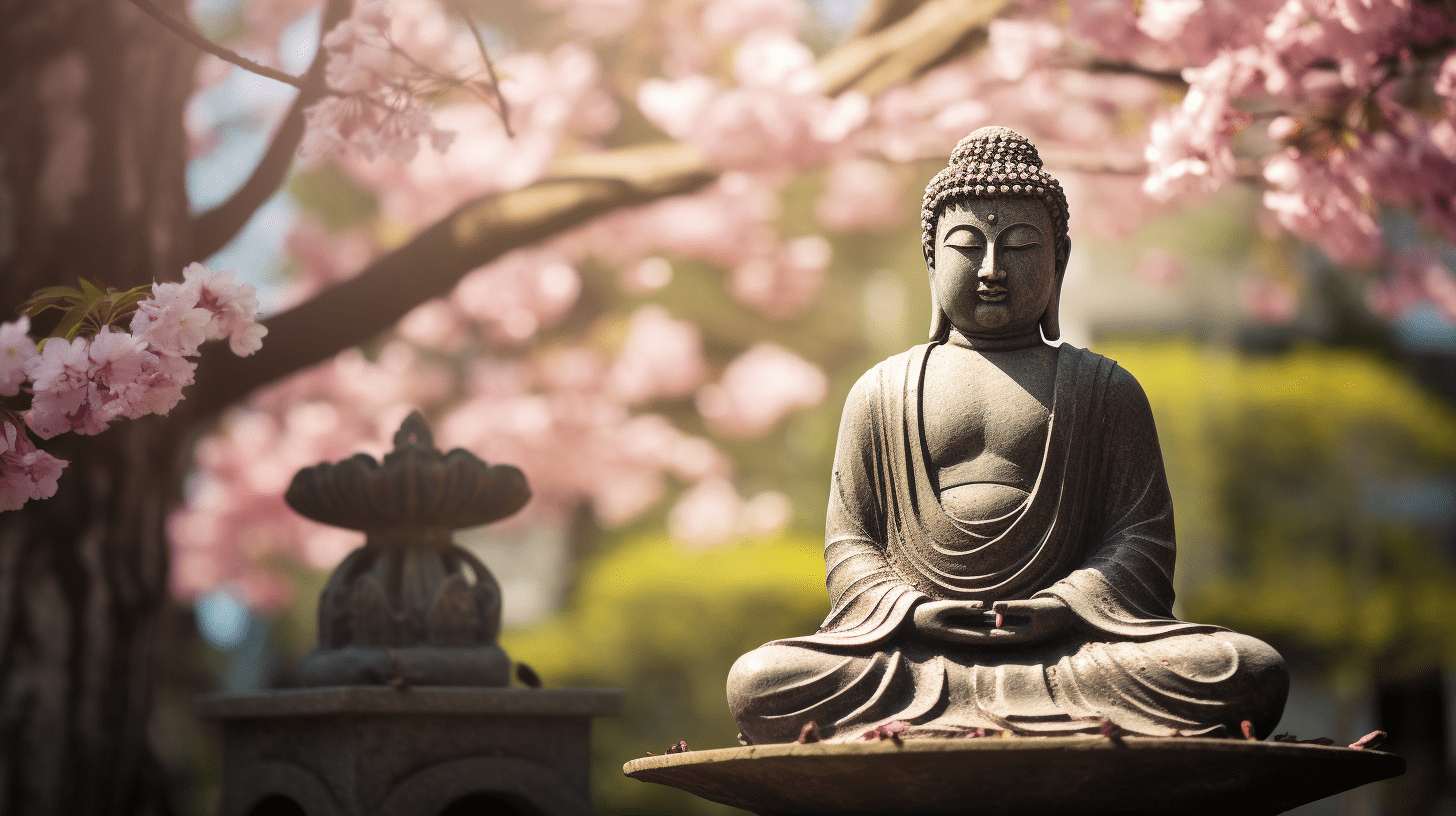
Meditation is a practice that involves focusing your attention and eliminating the stream of thoughts that may be running through your mind. It allows you to achieve a state of calmness, clarity, and inner peace.
Benefits of meditation

Meditation has a host of benefits that can significantly improve your overall well-being.
- It instills a sense of calm, bringing balance into your life.
- The practice helps cope with stress and anxiety, lightening your mental load.
- Regular meditation sharpens focus, boosts memory, and promotes mental clarity.
- It also combats age – related cognitive decline, ensuring your mind stays sharp as you get older.
- Through meditation, you can rise to a heightened state of self – awareness by focusing on the present moment and acknowledging thoughts as they emerge.
- Furthermore, it positively impacts mental health by enhancing awareness, clarity, and compassion.
- Lastly, it is a powerful tool for relaxation that not only lessens anxiety and stress but also bolsters overall well-being.
Different types of meditation

Exploring different types of meditation can help you discover the method that best supports your personal journey to well-being.
- Mindfulness meditation encourages you to be fully present and engaged in whatever is happening at the moment. This type of meditation is beneficial for managing stress and improving focus.
- Transcendental meditation involves repeating a specific mantra in your mind to settle into a state of deep rest and relaxation.
- Guided meditation offers verbal direction from an experienced practitioner, either in person or through audio recordings or apps. This type of meditation often uses visualization techniques to foster a sense of peace and calm.
- Vipassana meditation, one of India’s most ancient techniques, cultivates self-transformation through self-observation and introspection.
- Visualization Meditation uses your imagination to create relaxing or positive images in your mind, promoting inner peace and relaxation.
- Chanting Meditation involves reciting specific words or phrases (mantras) to enhance concentration and induce a meditative state.
- Spiritual Meditation seeks connection with the divine, making it popular for those who follow religious paths such as Hinduism, Christianity, or others.
- Movement Meditation includes practices like yoga or tai chi where motion guides your focus and mindfulness.
- Focused Meditation strengthens attention skills by concentrating on a single thing such as breath, candle flame, or a particular sound.
- Insight Meditation encourages understanding the true nature of reality by focusing on impermanence, suffering, and the idea of selflessness.
How to Meditate

Get comfortable before you meditate by finding a quiet space and sitting in a comfortable position with your back straight.
Getting comfortable before you meditate
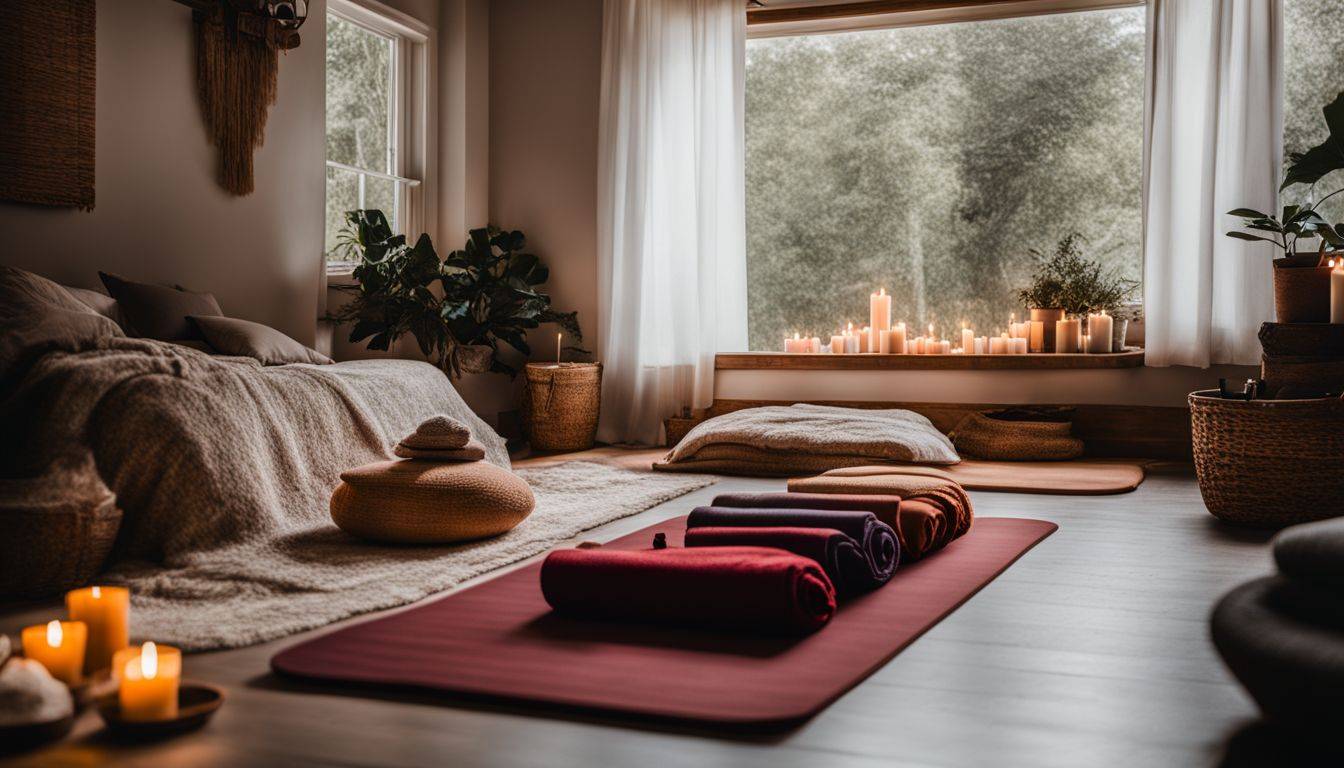
To enhance your meditation experience, achieving physical comfort plays a pivotal role. First and foremost, identify a peaceful spot in your home that enables tranquility. Sit upright with feet grounded or opt for the classic cross-legged position; these postures facilitate focus and deep breathing.
If you find sitting uncomfortable, try laying down on a yoga mat supporting your spine properly. Adorn soft clothing to prevent distractions from tight or itchy materials during your session; the goal is to reduce potential disruptions to a minimum for successful meditative practices.
Trying basic meditation practices

To incorporate meditation into your daily life effectively, try these basic meditation practices:
- Find a comfortable position: Sit or lie down in a posture that allows you to relax and stay alert at the same time.
- Focus on your breath: Take slow, deep breaths and pay attention to the sensations of inhaling and exhaling. Use your breath as an anchor for your attention.
- Practice mindfulness: Be fully present in the moment, observing your thoughts, feelings, and bodily sensations without judgment. Allow them to come and go without getting caught up in them.
- Start with short sessions: Begin with just a few minutes of meditation each day and gradually increase the duration over time. Consistency is more important than length.
- Use guided meditations: Utilize pre-recorded or online guided meditations specifically designed for beginners. These can provide instructions and help you stay focused during your practice.
- Set a timer: To avoid constantly checking the clock, set a timer for your meditation session so you can fully immerse yourself in the practice without worrying about the time.
- Create a dedicated space: Designate a quiet area where you can meditate regularly. Make it comfortable and free from distractions like phones or TVs.
- Stay patient with yourself: Remember that meditation is not about achieving perfection but rather cultivating awareness and acceptance of the present moment.
Incorporating meditation into your everyday life
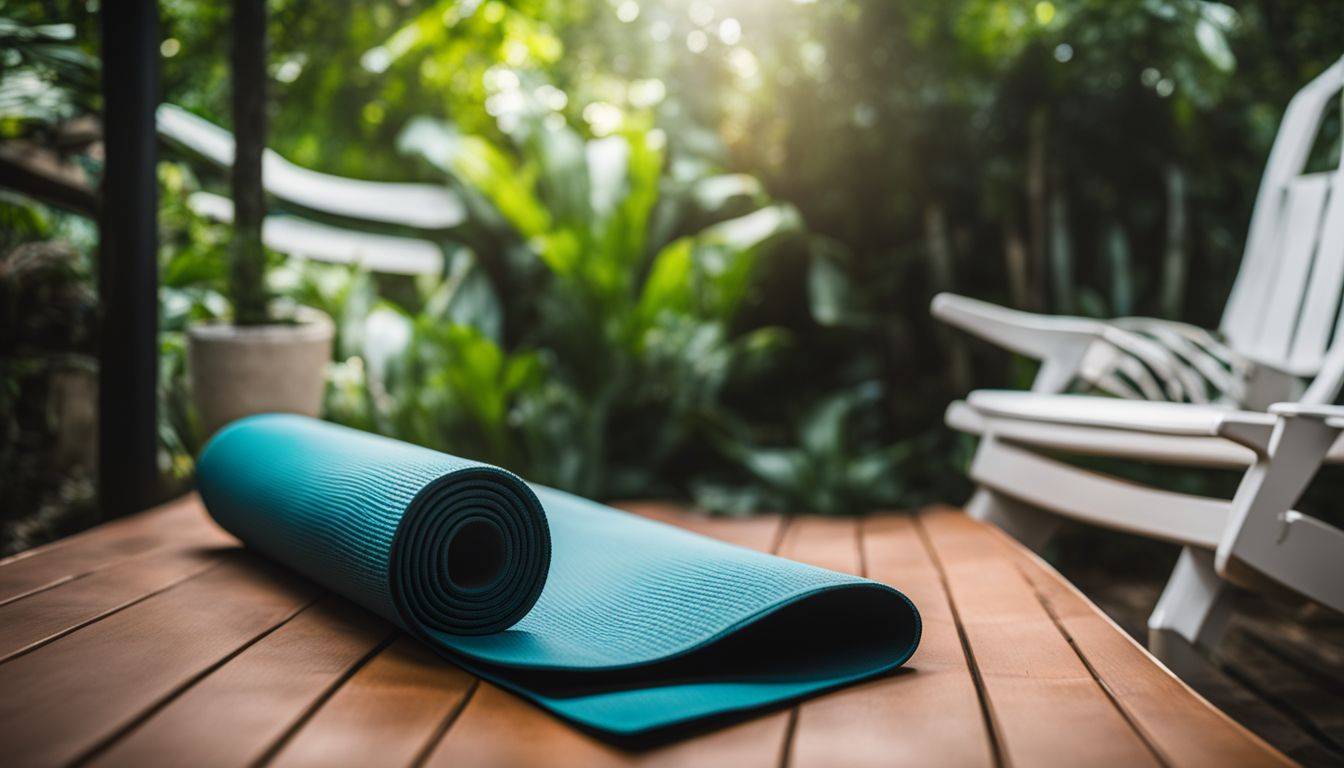
Incorporating meditation into your everyday life is a simple and effective way to cultivate inner peace and reduce stress. By making it a regular practice, you can experience a wide range of psychological benefits.
Studies have shown that meditation has positive effects on conditions such as high blood pressure, anxiety, and depression. Not only that, but by integrating meditation into your daily routine, you may also experience lower heart rate and blood pressure, potentially reducing the risk of heart-related issues.
The best part is that learning and practicing meditation is accessible to everyone with free resources available online. So why not start incorporating this powerful practice into your everyday life today?.
Guided Meditations for Beginners

In this section, you will find various guided meditations for beginners that range in duration from one minute to 15 minutes. These guided meditations include a body scan meditation, walking meditation, and loving-kindness meditation.
Whether you have just a few moments or can dedicate more time to your practice, there is a guided meditation here for you to try.
1-Minute Meditation

A one-minute meditation is a quick and effective way to bring calm and relaxation into your day. With our busy lives, finding just a minute to pause and be present can make a big difference.
There are various techniques you can try, such as basic breathing meditation or neck relaxation exercises. You can also use mindfulness exercises like sitting in stillness or focusing on the passing of time.
Short guided meditations, like a 1-minute arrival in mindful presence, can help relax both your body and mind. So take just one minute out of your day to practice this mini-meditation – you’ll be surprised at how much it can benefit your overall well-being.
10-Minute Meditation

A 10-minute meditation is a quick and effective way to calm your mind and enhance your overall well-being. By taking just a few minutes out of your day to focus on your breath and bring awareness to the present moment, you can experience increased feelings of relaxation and clarity.
Incorporating a 10-minute meditation into your daily routine is an accessible practice that can help reduce stress, improve concentration, and promote inner peace.
Whether you choose to meditate in the morning before starting your day or find a quiet moment during lunch break, dedicating this short amount of time to meditation can have profound benefits for both your mental and physical health.
So why not give yourself permission to pause for just 10 minutes each day and discover the transformative power of meditation?.
15-Minute Meditation

In just 15 minutes, you can find relief from anxiety and stress through the practice of meditation. This specifically designed meditation aims to restore inner calm and bring about peace, balance, and joy.
Even with a short time commitment, regular practice can lead to improved overall wellbeing and mental health. Whether you choose to meditate in bed or find a comfortable spot elsewhere, dedicating just 15 minutes each day can make a significant difference in your life.
So why not give it a try? Find a quiet space, close your eyes, focus on your breath, and let the benefits of this simple yet powerful practice wash over you.
Body Scan Meditation
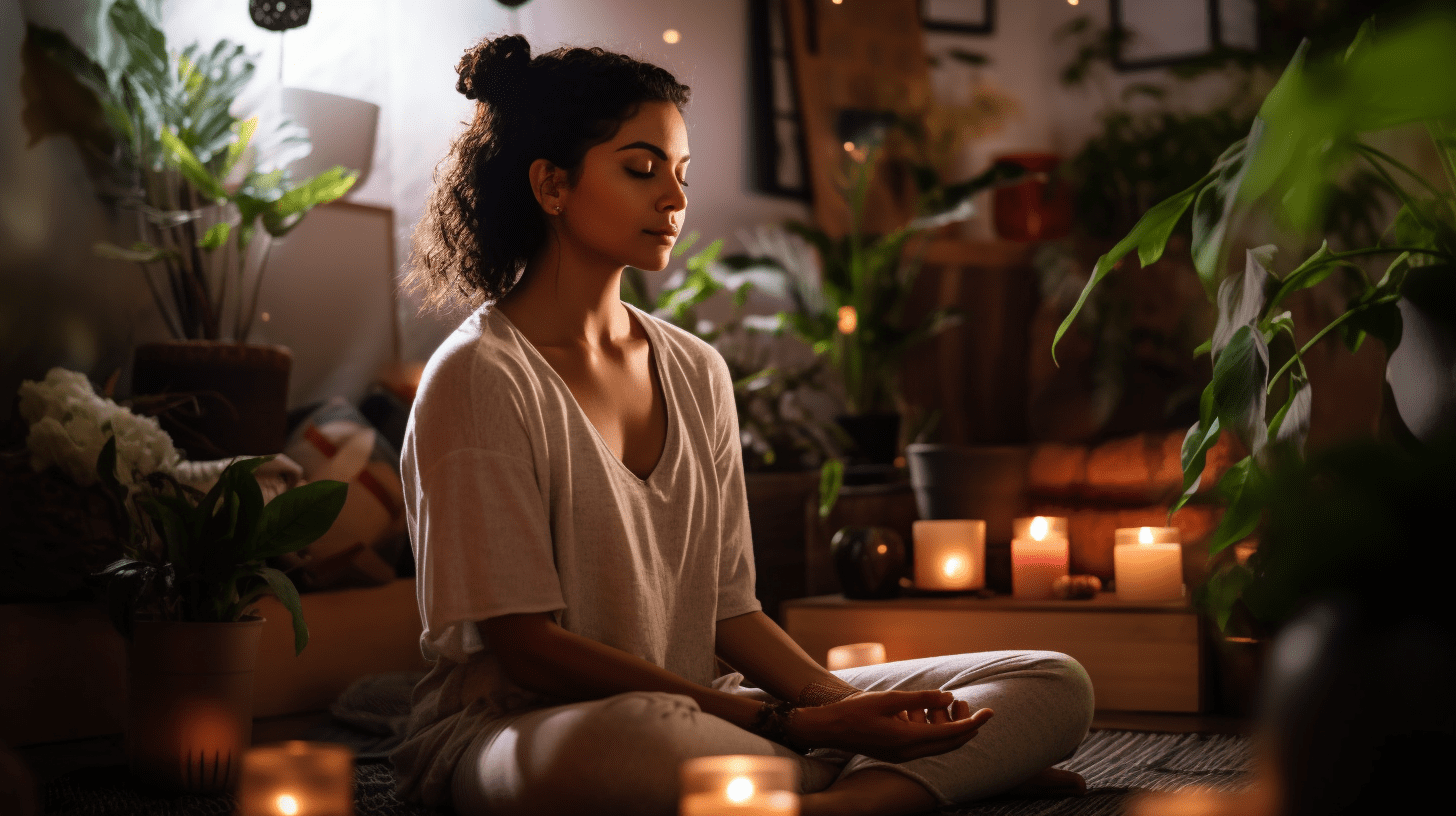
Body scan meditation is a mindfulness practice that involves scanning your body for any pain, tension, or abnormalities. This type of meditation has been shown to have numerous mental and physical benefits, including reducing stress.
By practicing body scan meditation, you can increase your awareness of your body and better cope with any discomfort you may be experiencing. Research has also found that this form of meditation helps individuals feel more relaxed, connected, and able to calm their emotions.
So if you want to enhance your self-awareness and promote relaxation, give body scan meditation a try today.
Walking Meditation

Walking meditation is a practice that allows individuals to connect with their senses and be fully present in the moment. By being aware of the sights, smells, and sounds around them while walking, people can cultivate mindfulness and reduce anxiety.
This type of meditation can also release pent-up energy, making it a great alternative for those who find it difficult to sit still for long periods. Whether rooted in Buddhism, Yoga, Daoism, or modern mindfulness practices, walking meditation offers a unique way to incorporate mindfulness into everyday life.
Loving-Kindness Meditation
Loving-Kindness Meditation, also known as compassion meditation, is a powerful practice that promotes self-love, understanding, empathy, and kindness. By cultivating loving energy towards oneself and others, it can strengthen feelings of kindness and connection.
Considered a radical act of love, it allows individuals to develop one-pointedness in their thoughts and actions. This type of meditation encourages the cultivation of positive emotions and attitudes towards ourselves and those around us, fostering a greater sense of compassion in our daily lives.
Overcoming Challenges in Meditation

Overcoming challenges in meditation can be a rewarding journey towards inner peace and self-discovery. From managing expectations to finding the right posture, explore practical tips to deepen your meditation practice.
Discover how to overcome distractions and tackle a wandering mind while cultivating mindfulness every day. Learn how to navigate physical discomfort and embrace the transformative power of meditation.
Dive into this article for valuable insights on overcoming challenges in meditation, and unlock the full potential of this ancient practice.
Managing expectations
Managing expectations is a crucial aspect when it comes to facing challenges in meditation. It’s important to remember that roadblocks and difficulties are normal on the meditation journey.
There are six common challenges that people may encounter, such as dealing with a wandering mind or handling distractions. However, it is possible to overcome these obstacles by staying patient and persistent.
Remembering that progress takes time and effort can help you manage your expectations and stay committed to your meditation practice. So, don’t get discouraged if things don’t go perfectly right away – keep going, stay focused, and trust the process of meditation.
Dealing with a wandering mind
During meditation, it is common for the mind to wander. Thoughts can pop up out of nowhere and distract us from our focus. However, it’s important to remember that this is a normal occurrence and there is nothing wrong with having a wandering mind during meditation.
Rather than trying to forcefully suppress these thoughts, mindfulness practices teach us to observe them without attachment or judgment. By acknowledging the wandering mind and gently bringing our attention back to the present moment, we can cultivate a greater sense of awareness and improve our ability to stay focused during meditation.
With time and practice, you may find that your mind begins to wander less frequently, allowing you to experience deeper levels of calmness and tranquility in your meditative practice.
Handling distractions
Distractions can often arise during meditation, but learning to manage them is crucial for a successful practice. It’s important to remember that distractions are quite common and should not discourage you.
Doubt can be one of the most common distractions that hinders the meditation process, so it’s essential to embrace a mindset of openness and acceptance. By acknowledging and gently letting go of distractions, you can find stillness within yourself and experience the benefits of a calm and focused mind.”.
Finding the right posture
A proper posture is essential for maintaining focus and avoiding distractions during meditation. When you meditate, it’s important to find a comfortable and stable position that allows your body to relax while keeping your mind alert.
One key aspect of a good posture is maintaining a straight spine. Whether you choose to sit up straight with your feet on the floor, sit cross-legged, or lie down, make sure that your spine remains aligned without arching or slumping.
By finding the right posture for you, you can create an optimal environment for deepening your meditation practice and experiencing its many benefits.
Dealing with physical discomfort
Meditation can sometimes bring physical discomfort, but it is important to approach it with a compassionate mindset. It is common to experience uncomfortable sensations or even pain while meditating, which may be caused by tension in the body or imbalances.
However, these discomforts can actually be seen as signs of progress in your practice. By acknowledging and accepting the physical sensations without judgment, you can develop a greater understanding of your body and learn to let go of any resistance or aversion that arises.
Embracing physical discomfort during meditation helps transform your relationship with pain and ultimately alleviates suffering, according to studies on mindfulness meditation’s ability to improve pain symptoms in various disorders such as lower back pain.
Frequently Asked Questions About Meditation

Learn everything you need to know about meditation, from common concerns and hand placement to using it for mental health.
Common questions and concerns
Many people have common questions and concerns about meditation. They might wonder about the best posture or hand placement during meditation, or how long and how often they should meditate.
Some also ask if it’s possible to use meditation to support their mental health or explore different types of meditation. These are all valid questions that can help deepen your understanding and practice of meditation.
Whether you’re a beginner or have been practicing for a while, addressing these questions will enhance your overall experience with meditation.
Eye position and hand placement during meditation
During meditation, finding the right eye position and hand placement can enhance your practice. Eye position can vary depending on personal preference and the type of meditation you are doing.
Some people prefer to keep their eyes closed for deep concentration, while others choose to gently gaze at a fixed point or keep their eyes slightly open.
As for hand placement, there are different options such as interlacing the fingers with the left thumb on top for females and the right thumb on top for males, or clasping one hand over the other.
These hand positions are known as mudras and they can help reinforce specific healing states of mind during meditation. Remember that these positions may vary based on individual preferences and the techniques being practiced.
In Summary:
– Eye position during meditation can be chosen based on personal preference.
Duration and frequency of meditation sessions
Research has shown that even a short meditation session can provide benefits to our well-being. Experts recommend starting with sessions as brief as five minutes and gradually increasing the duration over time.
While 15 to 20 minutes is often considered an ideal length for meditation, studies have found that just 13 minutes of daily practice can lead to positive effects. It’s important to note that frequency plays a significant role in reaping the benefits of meditation.
Establishing a consistent practice, even if it’s just a few minutes each day, is more beneficial than sporadic longer sessions. It’s worth mentioning that experienced meditators may choose to practice for longer periods, ranging from 30 minutes or more, depending on their level of concentration and commitment.
Using meditation to support mental health
Meditation can be a powerful tool for supporting mental health. Research has shown that regular meditation practice can help reduce symptoms of anxiety and depression, as well as improve attention span and overall emotional well-being.
By practicing mindfulness and focusing on the present moment, individuals can cultivate a sense of calmness and inner peace. Meditation is also known to reduce stress levels and promote better sleep, which are crucial factors in maintaining good mental health.
Whether you’re dealing with everyday stressors or struggling with more serious conditions, incorporating meditation into your routine can provide significant benefits for your mental well-being.
Exploring different types of meditation
There are various types of meditation that you can explore to find the one that resonates with you. Some popular types include mindfulness, transcendental, guided, vipassana, loving kindness, chakra, and yoga meditation.
Each type has its own unique focus and techniques. By trying out different styles of meditation, you can discover which one suits your preferences and goals best. Whether you want to cultivate mindfulness, reduce stress, or improve overall well-being, there is a type of meditation that can help you achieve your desired outcomes.
Next Steps in Your Meditation Journey

Take your meditation practice to the next level by exploring advanced techniques and resources that can deepen your experience. Discover the profound benefits of a consistent meditation practice and cultivate kindness and compassion in your daily life.
Start your journey today and unlock the transformative power of meditation. Keep reading to learn more.
Recommended resources and readings
Expand your meditation journey with these recommended resources and readings:
- Mindful: Explore the platform that offers tools and resources for living a mindful life. Dive into their guided meditations and meditation practices.
- University of Houston’s Spiritual Meditation resource: Discover techniques such as observing your surroundings, paying attention to your body, thoughts, and breath, and fully relaxing.
- Free 4-step daily self-practice guide for meditation: Get started on your meditation practice with this step-by-step guide designed for beginners.
- Books on meditation: Expand your knowledge with books like “The Miracle of Mindfulness” by Thich Nhat Hanh or “Wherever You Go, There You Are” by Jon Kabat-Zinn.
- Apps for meditation: Try popular meditation apps like Headspace, Calm, or Insight Timer to access guided meditations and mindfulness exercises right from your phone.
- Online communities and forums: Join online communities focused on meditation to connect with like-minded individuals, share experiences, and gain support on your journey.
Starting a home meditation practice
To start a home meditation practice, find a quiet and comfortable space where you can sit undisturbed. Set aside a specific time each day for your practice to establish consistency.
Begin by focusing on your breath and letting go of any tension in your body. You can also incorporate guided meditations or use apps to help guide your practice. Remember that it’s normal for your mind to wander during meditation – simply acknowledge the thoughts and gently bring your focus back to your breath.
Over time, with regular practice, you will cultivate a sense of calm and mindfulness in your daily life.
Benefits of a consistent meditation practice
Consistent meditation practice offers several benefits that can enhance your overall well-being and quality of life. These benefits include:
- Increased happiness: Regular meditation helps enhance the flow of constructive thoughts and positive emotions, leading to a happier life.
- Improved mental health: Meditation is linked to reduced stress, anxiety, and depression, benefiting your mental health.
- Enhanced cognitive abilities: Meditation improves focus, concentration, and sleep quality, which can enhance your cognitive abilities.
- Better memory and creativity: Regular meditation enhances attention, memory, and creativity while relieving stress and anxiety.
- Greater sense of calm: By relaxing the mind and allowing you to focus on one thing at a time, meditation promotes a sense of calmness.
- Reduced anxiety: Mindfulness meditation has been shown to effectively reduce anxiety levels and bring about positive changes in the brain.
Cultivating kindness and compassion through meditation
Meditation has the power to cultivate kindness and compassion within ourselves. One powerful practice for this is Loving-Kindness Meditation. By engaging in this type of meditation, we can develop a greater sense of self-love, empathy, understanding, and kindness towards others.
In Loving-Kindness Meditation, we send goodwill and well-wishes to ourselves, our loved ones, neutral people, difficult people, and ultimately to all beings.
It may seem challenging at first to extend kindness towards someone who has caused us difficulty or harm; however, through consistent practice, we can learn to let go of resentment and replace it with genuine care for their well-being.
This practice not only benefits those around us but also leads to personal growth and transformation as we open our hearts to love unconditionally.
Exploring advanced meditation techniques
For those looking to deepen their meditation practice, there are several advanced techniques worth exploring. One technique is transcendental meditation, which involves repeating a mantra to achieve a higher state of consciousness.
Another option is mindfulness meditation, where you focus on the present moment and observe your thoughts without judgment. Kundalini meditation involves awakening the dormant energy at the base of your spine and channeling it through your body.
Lastly, loving-kindness meditation cultivates feelings of compassion and kindness towards yourself and others. These advanced techniques can bring about profound experiences and further enhance the benefits of regular meditation practice.
Conclusion
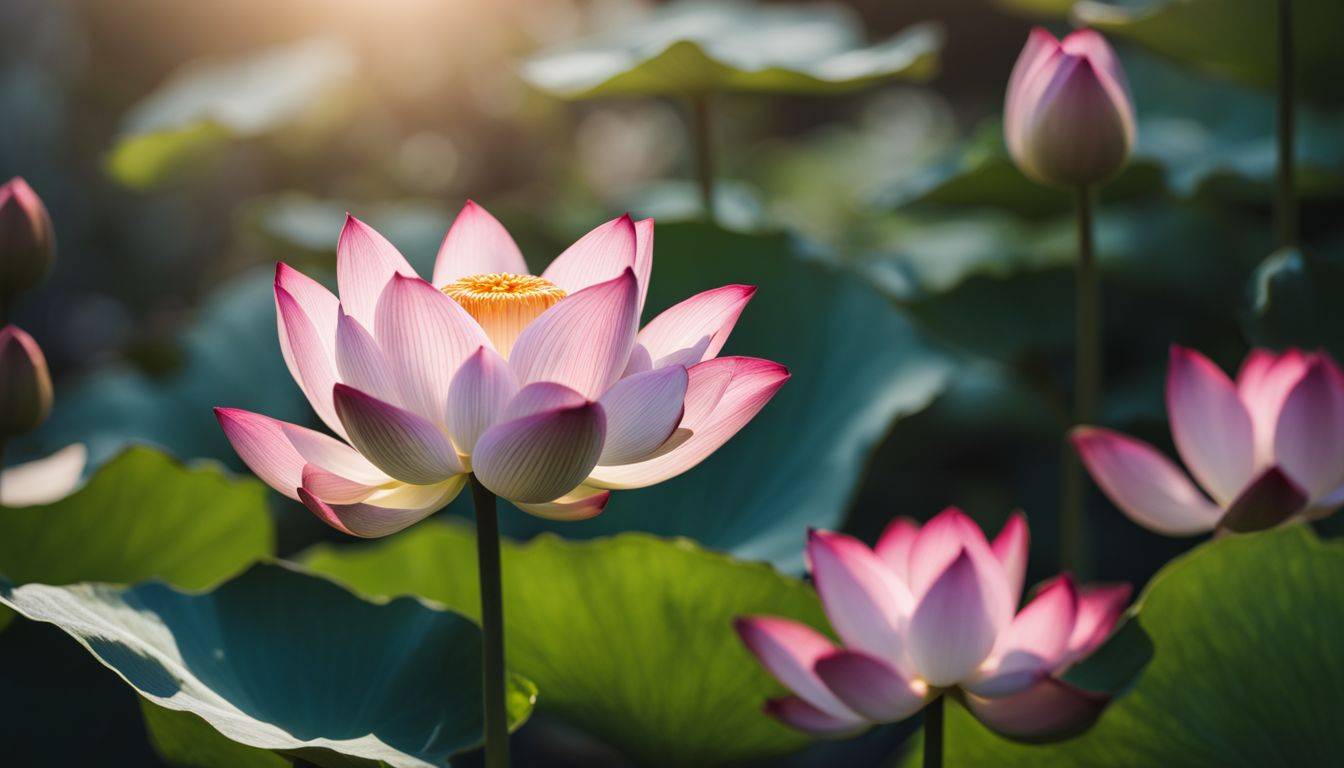
Incorporating meditation into your daily life can greatly improve your well-being. By taking the time to get comfortable and practice basic techniques, you can experience reduced stress, increased focus, and a greater sense of calm.
Explore different types of meditation and find what works best for you as you embark on your journey towards a healthier mind and body.
FAQs
1. How do I start meditating?
To start meditating, find a quiet and comfortable space, sit in a relaxed position, close your eyes, and focus on your breath or a specific point of attention.
2. How long should I meditate for?
You can start with just a few minutes of meditation each day and gradually increase the duration as you become more comfortable. Aim for at least 10-15 minutes per session.
3. What are the benefits of regular meditation?
Regular meditation can reduce stress, improve focus and concentration, enhance self-awareness, promote emotional well-being, and help you cultivate inner peace and tranquility.
4. Can anyone meditate or is it only for certain people?
Anyone can practice meditation regardless of their age, background, or beliefs. It is a simple technique that can be beneficial to everyone who wants to enhance their mental health and overall well-being.
Disclaimer – About Us – Terms & Conditions – Contact Us – Privacy Policy
